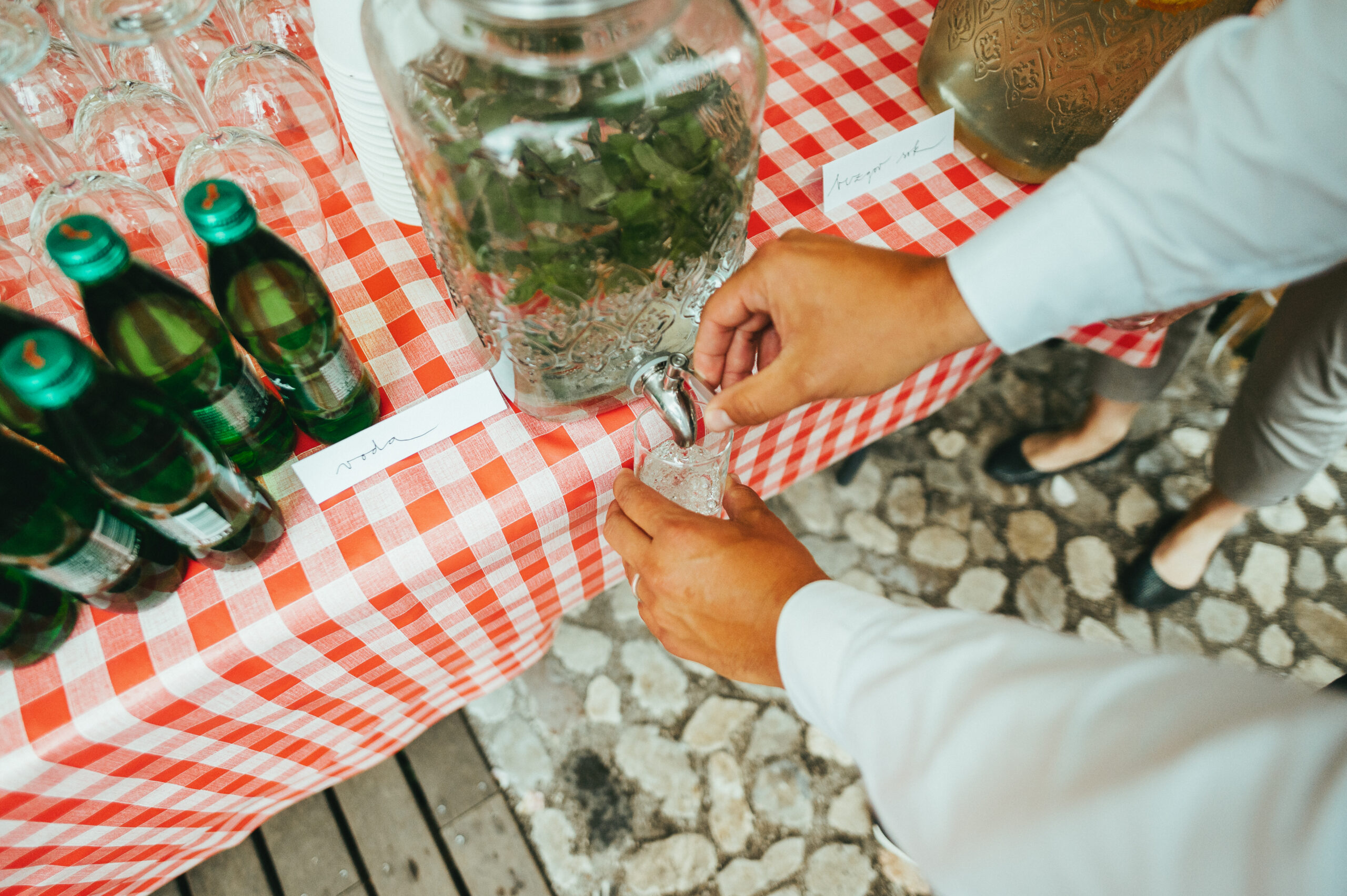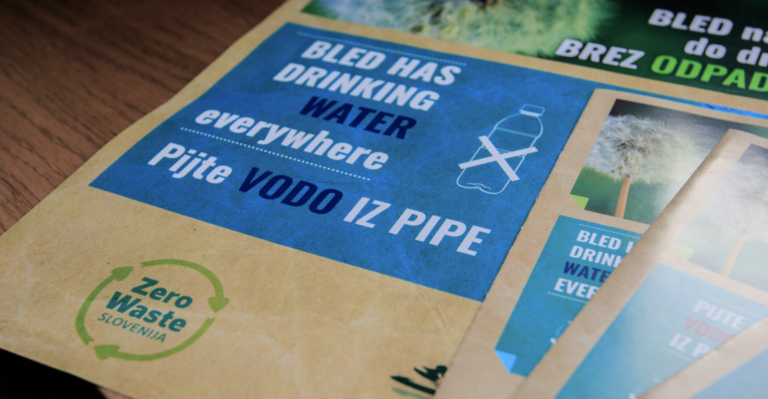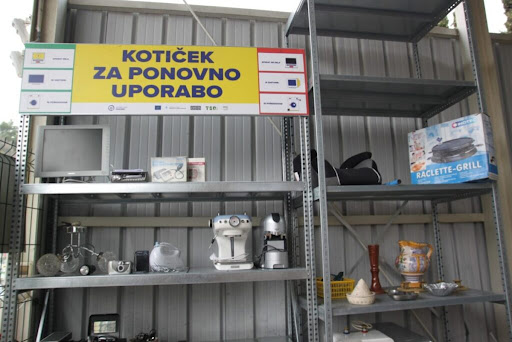


Written by Žaklina Žnajder, Ekologi brez meja.
Reuse is one of the most effective waste prevention measures. We can do a lot on an individual level, and we can be even more successful if the local community helps us. As we celebrate World Refill Day on June 16 2022, we took a closer look at some of the best reuse and refill practices across Slovenian municipalities that have committed to their own zero waste journey.
Disposable plastic products are flooding our roads and nature. If they are not recyclable, they are disruptive to waste management and their incineration pollutes the atmosphere. The endless wave of plastic waste does not only affect our environment, but also threatens human health.
To tackle the wave of single-use, about a quarter of all Slovenian municipalities have joined the initiative to reduce single-use plastic in public and internal events organized by municipalities. Single-use items like plastic plates, cups and cutlery are replaced by reusable ones (glass, ceramics, metal, reusable and washable plastics…). At the same time the municipalities are setting a great example and raising awareness about responsible event organization through:

One of the biggest challenges that continues to be faced is reducing containers for take away food. They are most often single use items and some packaging is being promoted as compostable (usually for industrial composting). But who can assure that the packaging is properly disposed of after the use? Plus there is still lots of confusion when it comes to biodegradable packaging and its composting characteristics (but so-called “bioplastics” won’t solve the plastic pollution problem).
Slowly zero waste or refill shops are popping up in Slovenia and some commercial brands are following these trends. Our aim is to cut out any unnecessary or wasteful packaging by storing products in large containers or vending machines. The interesting thing is that the popularity of milk vending machines is increasing again and it makes more sense now than ever, as a way to support farmers, reduce waste and get a higher quality product.

Every community should also have a REUSE center where second-hand items can be bought and repaired. Usually they are run as social enterprises and their priority is to encourage and promote the reuse of used products, carrying out upcycling products and transforming them into new unique masterpieces. However, some centers go a step further and build their own brands, such as Depo reuse center in Vrhnika, where bags are created from seat belts, airbags, sailboats or ski jumpers' jerseys.
ZEOS is another example of a non-profit organization which promotes the reuse of “still to be used” appliances (eg. washing machine, refrigerator, freezer, desktop and laptop computer, small household appliances, toys, mobile phones, speakers etc.) across the country with areas dedicated for the collection of items for repair and sale. Another form of reuse that is happening in our communities are different textile, toys, school accessories and plant swaps.

In addition, a libraries of things have been recently popping up, where locals can borrow a wide variety of items, like tools for gardening, pasta maker or sewing machine. They operate on the same principle as regular libraries, except that users borrow different items instead of books. Their added value is that they are an environmentally friendly alternative to mass consumption (they contribute to less waste and less consumption of natural resources - instead of buying things you need only a few times per year, you simply borrow).
Our favourite practice is washable diapers which are a perfect example of how we can minimize the quantities of residual waste (where diapers and other hygiene products end up). In the Vrhnika kindergarten, they were among the first to test washable diapers in practice and prove that it makes environmental and economic sense if disposable nappies are replaced with washable ones. You can find out more about their sustainable practices in the video.
We have also established a Slovenian online platform Manjjeveč (Less is more) where people can find maps with zero waste shops/corners, second hand shops, repair masters, library of things and many more in one place - depending on the needs and local offer.
Many Slovenian zero waste municipalities have already shown their support for the European campaign #WeChooseReuse. We’re calling on more municipalities, individuals, organizations and companies that are committed to a world with less waste to support reuse systems in Europe. Sign the #WeChooseReuse commitment today!